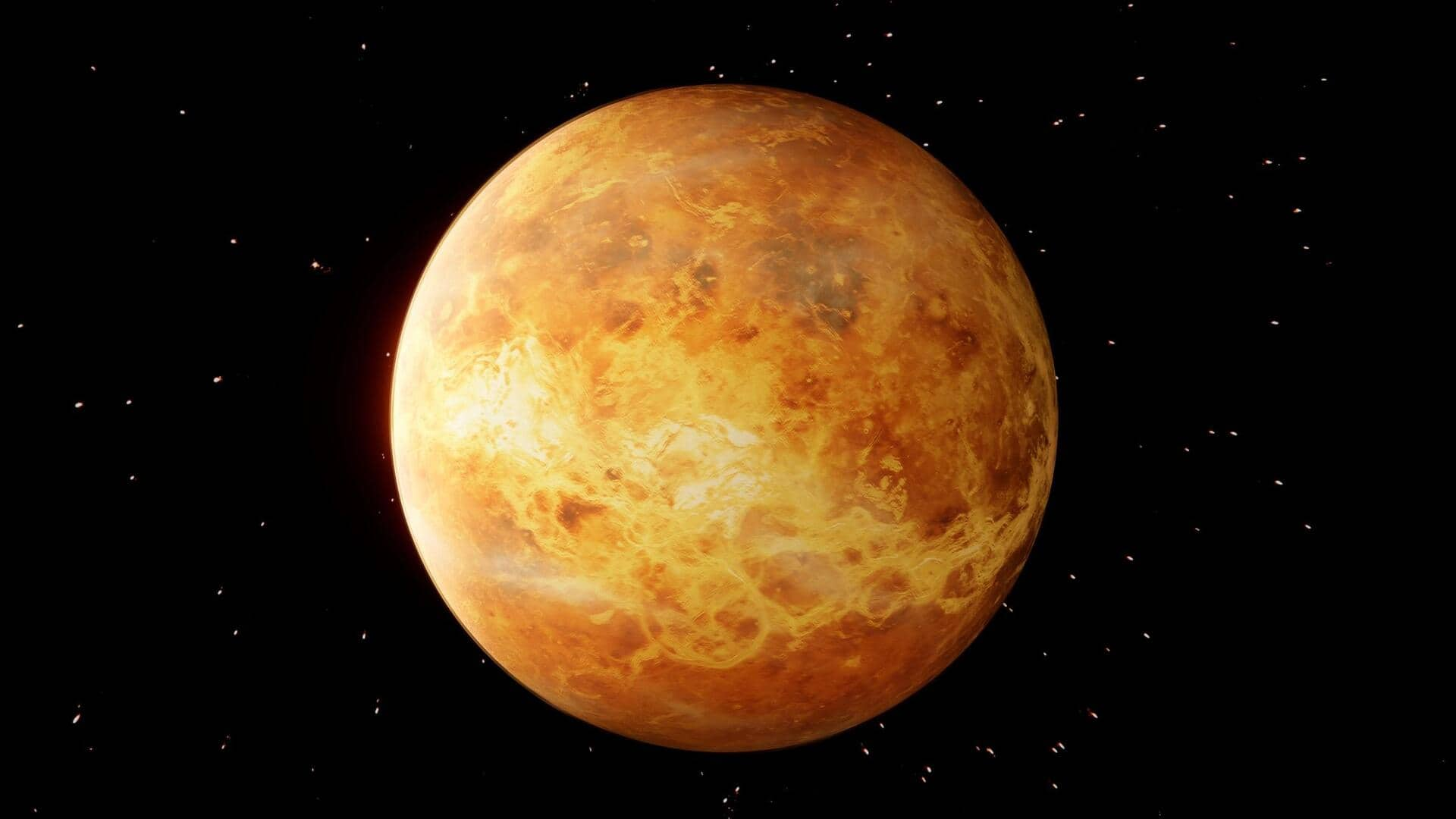
Venus was born too hot to support life, says study
What's the story
A new study published in Nature Astronomy has debunked the age-old myth that Venus, commonly referred to as Earth's "evil twin," may have once supported life. The research, led by a team from the University of Cambridge, indicates that Venus's surface never had liquid water—an essential ingredient for life as we know it. The conclusion was reached after studying the planet's atmospheric chemistry and volcanic activity.
Inside
Venus's interior too dry for oceans
Led by PhD scholar Tereza Constantinou, the researchers studied the breakdown of key chemicals in Venus's atmosphere like carbon dioxide, water vapor, and carbonyl sulfide. They found that the absence of water vapor in Venus's volcanic eruptions was a major clue. Unlike Earth, where eruptions release large amounts of water vapor due to our planet's water-rich interior, Venus's volcanic gases have no more than 6% water vapor. This indicates that Venus's interior has never been wet enough to sustain oceans.
Hostile environment
Venus's hostile conditions challenge previous theories
Venus is infamous for its extreme conditions, including surface temperatures of about 500 degree Celsius and clouds of sulfuric acid. Despite the harsh conditions, some scientists had theorized that billions of years ago, Venus might have been cool enough to host liquid water. However, this new study debunks that idea, and supports the theory that Venus was "born hot" and never had water.
Implications
Study impacts search for habitable exoplanets
The findings of this study go beyond our solar system and could help astronomers identify habitable exoplanets. If Venus was never habitable, then Venus-like planets elsewhere may also be less likely to support life. This discovery could have a major effect on the search for life beyond our solar system, and help us refine our understanding of how planets evolve.
Upcoming mission
NASA's DAVINCI mission to provide further insights
NASA's upcoming DAVINCI mission, scheduled to launch in 2029, will hopefully shed new light on Venus's atmosphere and surface conditions. The probe will gather important data that could help answer the ultimate question: Could Venus have ever supported life? Though not meant to survive Venus's harsh conditions, it could offer a fleeting glimpse of the planet's surface, adding more pieces to the puzzle of its past.